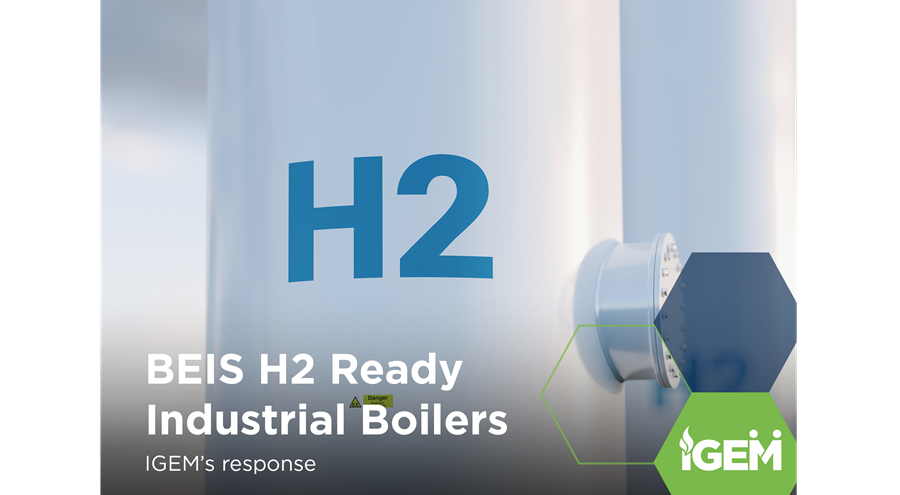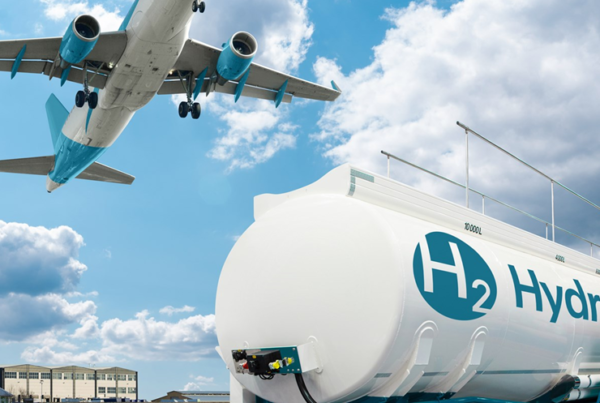
Introduction:
Licenced by the Engineering Council, IGEM is the professional engineering institution for gas representing thousands of engineers, technicians and managers across the UK.
As advocates of excellence, IGEM’s core aim is to help all those involved with gas to achieve and maintain the highest standards of professional competence. Working with stakeholders from across the industry we seek to represent the views of our members and the wider gas community and to inform and influence current and future gas and energy policy.
IGEM fully supports the transition of the energy system to meet a net zero future and are playing a key role in supporting the evidence base for the application of low carbon gases in the gas network. As well as developing the first Hydrogen Technical Standards, IGEM are facilitating a change in regulations on the quality of gas allowed to be injected into the transmission and distribution network – to enable a higher proportion of greener gases such as biomethane and eventually hydrogen.
Our role in the government’s Hydrogen Programme Management Group, sees us working directly with gas network companies, safety experts, academia and policy advisors to assess the evidence base and develop informed recommendations on the future of the gas grid.
We welcome the opportunity to respond to this consultation and aim to represent the collective views of IGEM Members and our gas industry stakeholders. We have selected questions from the consultation which are of greatest relevance to our Members and provided our response below.
Section 2.1
-
What factors would impact the way an industrial site would decarbonise boiler processes?
Heat requirements – certain industrial processes require very high temperatures or pressures which some technology options may not be able to deliver.
Cost – the cost of the technology installation, site retrofit and running costs will all factor into decision making.
Reliability/ continuity – continuous supply is of the utmost importance to industrial sites and processes. The technology’s ability to minimise interruption in that supply will weigh heavily in the site’s assessment.
-
Do you think that low carbon hydrogen is a good way to decarbonise industrial boilers? Please give details to explain your view.
Strongly agree – The transition from a natural gas burning boiler to a hydrogen-ready boiler would be a simple one. Where limited retrofit and process redesign of the industrial site would be needed and therefore the cost of the transition would be minimised. Alternative technologies will be more challenging to adopt, requiring a greater level of system change and retrofit.
An Industrial Fuel Switching Market Engagement Study assessed the technical and economic challenges of three fuel switching options. It concluded that hydrogen had the highest technical potential for fuel switching, due in part to its similarity to natural gas.[1] The Hy4Heat project, Work Package 6, also assessed the technical requirements and challenges associated with industrial hydrogen conversion and estimated the associated costs and timeframes. The study found that the majority of industrial gas heating equipment could be retrofitted to operate on hydrogen.[2]
As part of the HyNet Industrial Fuel Switching’ programme, Unilever has just demonstrated the world’s first large-scale demonstration of 100% hydrogen-firing in a consumer goods factory. This project will provide crucial evidence to support other major manufacturing sites to switch to low carbon hydrogen, and demonstrates the potential of low carbon hydrogen across industry to decarbonise and create high skilled jobs.
The labour force currently installing and maintaining industrial boilers are very well placed for retraining on adaptation to hydrogen appliances, a contrast to the workforce available for other key technology pathways.
Maximising the use of low carbon hydrogen for industrial boilers would help alleviate the demands on the electricity system. It will support security of supply issues, storage capability and provide the speed response requirement for many industrial processes.
The development of hydrogen clusters across the UK is a central part of the UK Government’s Hydrogen Strategy and wider decarbonisation agenda, particularly for the hard to abate sectors such as production and manufacturing. These industrial clusters present an opportunity to maximise the use of the infrastructure being built and the hydrogen supply, to support the widest possible remit across both industrial and domestic uses.
Spatial analysis conducted by Element Energy, on behalf of Cadent, identifies six major industrial areas of the UK that are also well located for large-scale hydrogen production. Although these regions cover just 7% of the UK by area, crucially, they represent 39% of HGV registrations and 42% of demand for domestic natural gas (2019). This demonstrates the considerable potential to scale up production and use of hydrogen in these regions, and the opportunity to maximise supply efficiencies across industrial and domestic end uses.[3]
In addition, the high level of gas consumption by industrial users, represents a large percentage of total gas use in the UK. A conversion of industrial boilers to low carbon hydrogen will therefore provide a significant contribution to our carbon emissions reduction target.
IGEM engaged its social media following to vote in polls related to this call for evidence. 86% of those that voted, agreed that low carbon hydrogen is a good way to decarbonise industrial boilers.
-
Would other low carbon alternatives, including electrification, biofuels or CCUS, also offer a suitable way to decarbonise boiler processes? To what extent would changing energy prices influence your view?
Electrification can play a valuable role in fuel switching some industrial heating equipment as part of a diverse energy portfolio. However the heat requirement for some industrial processes would not be adequately met by e.g. heat pump technology and local electricity grid infrastructure. That being said, we see a role for hybrid technologies using both electricity and gas interchangeably, which would provide flexibility, reliability and not place too great a strain on electricity capacity.
Business owners will seek a least cost technology solution that meets carbon requirements, and are likely to prioritise the security of supply to ensure industrial processes/ production is maintained without interruption.
CCUS also offers opportunities for those business that are unlikely to be located near hydrogen supply infrastructure and need to continue use of fossil fuels for direct firing industrial processes (such as kilns/furnaces). However this may be dependent on the proximity to relevant infrastructure, such as industrial clusters planning on using CO2 pipelines.
Biomass and electrification are less technically suited for industrial processes with high temperature requirements (ranging from 240-2000°C). [4]
Hydrogen could be the most cost-effective fuel switching option for the majority of the fossil fuel use in manufacturing based on fuel cost projections. This includes fuel switching for all the main industrial fuel consuming processes, steam production, high and low-temperature heating (both direct and indirect heating), and reduction processes. [5]
Given the options available, we support a site by site technology assessment process to ensure the right low carbon option is chosen for the site, taking into account local infrastructure.
Section 2.2
-
How should hydrogen-ready be defined for industrial boilers? Do you have any views on the ways we have described hydrogen-ready for industrial boilers?
We echo the view of boiler manufacturers who have suggested that hydrogen-ready should mean that a boiler can be converted from natural gas to 100% hydrogen with the minimum possible component changes and re-commissioning actions, as is technically feasible for a particular site. Providing the same nominal power compared to fossil fuels and meeting all safety and emissions requirements.
We refer you to the report prepared by the Heating and Hotwater Industry Council, which defines hydrogen ready boilers as “a boiler of any type (Regular, System or Combination) that “out of the box” is ready to be connected to the Natural Gas Network and following a conversion and re-commissioning process in situ, can then operate safely and efficiently, maintaining equivalent comfort levels and providing a sufficient supply of heating and hot water using hydrogen.” The full report is available here: https://www.hhic.org.uk/uploads/60365E39725CC.pdf
-
Do you agree it would be possible for equipment manufacturers to produce hydrogen-ready boiler equipment at scale and in the ways described above? Please give details to explain your view.
Strongly agree – Boiler manufacturers have already demonstrated that 100% hydrogen boilers are technically feasible and they will work with the wider market to ensure the supply chain is ready to support the scale up of equipment.
It is crucial that the right policy drivers are in place so that the market can deliver, increasing demand for hydrogen ready industrial boilers and reducing production costs.
Section 3.1
-
Considering the possible levers available, do you have any views on whether government should enable and/or require industrial boiler equipment to be hydrogen-ready?
IGEM supports the view that government should require (mandate) industrial boiler equipment to be hydrogen-ready. With the expectation that sites replace their existing boiler with a hydrogen-ready boiler at the end of the asset’s lifecycle, to minimise cost. Any mandate must also take into consideration certain exemptions for any processes or equipment where conversion is not technically feasible.
It is imperative that Government provide a clear policy direction so that the market will have the confidence to invest and help reduce costs of production.
We are yet to fully understand the appliance costs associated with hydrogen-ready industrial boilers (unlike domestic hydrogen ready boilers). Once manufacturers can confirm cost and capability to scale up supply, further assessment can be made on the levers to support sites to convert. In the case of increased appliance costs, supporting levers such as grants and/or scrappage schemes would be appropriate.
The requirement to install hydrogen-ready boilers presents a ‘no regrets’ decision, given the right policy mechanisms and support.
-
How do you think the market for hydrogen-ready boiler equipment would develop without regulation?
Regulatory support is essential to give the right market signals and increase the production of hydrogen. Without which the industrial market would develop in a fragmented way without capitalising on efficiencies and economies of scale. It would ultimately develop too slowly to provide a meaningful impact on carbon emission reduction targets in the short-medium term.
-
Do you agree with the benefits and risks presented of requiring boiler equipment to be hydrogen-ready? Are there any other factors to consider?
A benefit that has not been listed is the reduced pressure on the electricity system. Electricity infrastructure will need to accommodate a considerable uptake in electrification across the UK, including a degree of domestic heat and transport. Requiring sites with industrial boilers to convert to hydrogen ready boilers, where it is practical and cost minimal to do so, will help reduce the burden on electricity capacity and maintain flexibility in our energy system. The Carbon Trust report: Flexibility in Great Britain echoes the need to diversify our energy demand and maintain flexibility – https://www.carbontrust.com/resources/flexibility-in-great-britain
Maintaining a diverse energy system will also support our energy resilience. Recent extreme weather events have emphasised the fragility of the UK electricity system and highlights the risks associated with reliance on one energy vector.
In terms of the risks presented, it is clear that sites must be supported to make an assessment on the merits of all possible technologies. The Government must determine which regions and localities are most likely to have hydrogen infrastructure to support decision making. This will avoid wasted investment and potential stranded asset.
The approach must also tie-in to the considerations around domestic consumers and hydrogen ready boilers in the home – to maximise efficiencies and overall benefits.
Regulation requiring hydrogen-ready boiler equipment must be implemented in coordination with supply chain engagement and buy-in, to ensure they are ready to scale up supply.
-
If government required industrial boilers to be hydrogen-ready, what would be the implications for other types of equipment used for combustion of fossil fuels? (e.g. domestic and commercial boilers, industrial kilns, furnaces, ovens, dryers, and electricity generating equipment.)
This would send positive market signals for other types of equipment and the domestic market – in turn increasing market confidence, increasing investment and creating demand for hydrogen ready products.
The requirement to switch other types of equipment to hydrogen-ready, should be based on the following key considerations:
- Greatest carbon savings
- Local hydrogen infrastructure/supply
- Ease of technology transition
- Cost efficiencies
- Aligning to current asset lifecycle schedules
Satisfying these areas should present a ‘no-regrets’ choice for the majority of users.
Section 4.1
-
Do you agree that the existing supply chain would be able to adapt to meet potential regulation requiring industrial boiler equipment to be hydrogen-ready? Please give details for your views.
Agree – IGEM is confident that the supply chain can adapt to meet the requirements of hydrogen ready industrial boiler equipment, provided that a clear policy direction is provided and the right standards and certifications are developed in alignment with technical development.
Of IGEM’s social media following that voted in our poll, 67% of respondents agreed that the supply chain would be able to adapt.
Dumphy Combustion represents an excellent example of the supply chain adapting for a hydrogen future – they are believed to be the first hydrogen burner manufacturer to attain CE Certification for 100% hydrogen gas and all possible blends between hydrogen and natural gas, including admix (20% hydrogen, 80% natural gas).
Section 4.2
-
How could hydrogen-ready requirements for industrial boiler equipment support the following objectives and maximise benefits to the UK economy:
- Jobs and investment
- Export opportunities
- Innovation, knowledge, and technology transfer
- Leadership for standards and regulation
The UK is emerging as one of the leaders in hydrogen research and development, however risks being overshadowed by other countries in terms of investment and turning ambition into policy. We must clarify our policy direction and enable the right market signals and levers to help ramp up our domestic production, encourage investment and support innovation. This will maximise the benefits for the UK economy and jobs, including the export of technology, standards and knowledge. Hydrogen standards being developed in the UK are already being used in Europe as the basis for European standards.
-
Do you have any views or evidence regarding work to develop standards or regulation in other countries which would be relevant if the UK were to require industrial boiler equipment to be hydrogen-ready?
We are aware of the development of hydrogen related standards in Europe within CEN TC58 and GSE 5.
[1] Industrial Fuel Switching Market Engagement Study, Element Energy and Jacobs, 2018
[2] Conversion of Industrial Heating Equipment to Hydrogen, Hy4Heat Work Package 6, 2019
[3] The Future Role of Gas in Transport, Green Gas Transport Pathway, Cadent, 2021
[4] Industrial Fuel Switching Market Engagement Study, Element Energy and Jacobs, 2018
[5] Hydrogen in a low-carbon economy, Climate Change Committee, 2018
Read the most up to date Fuel Cell and Hydrogen Industry news at FuelCellsWorks




